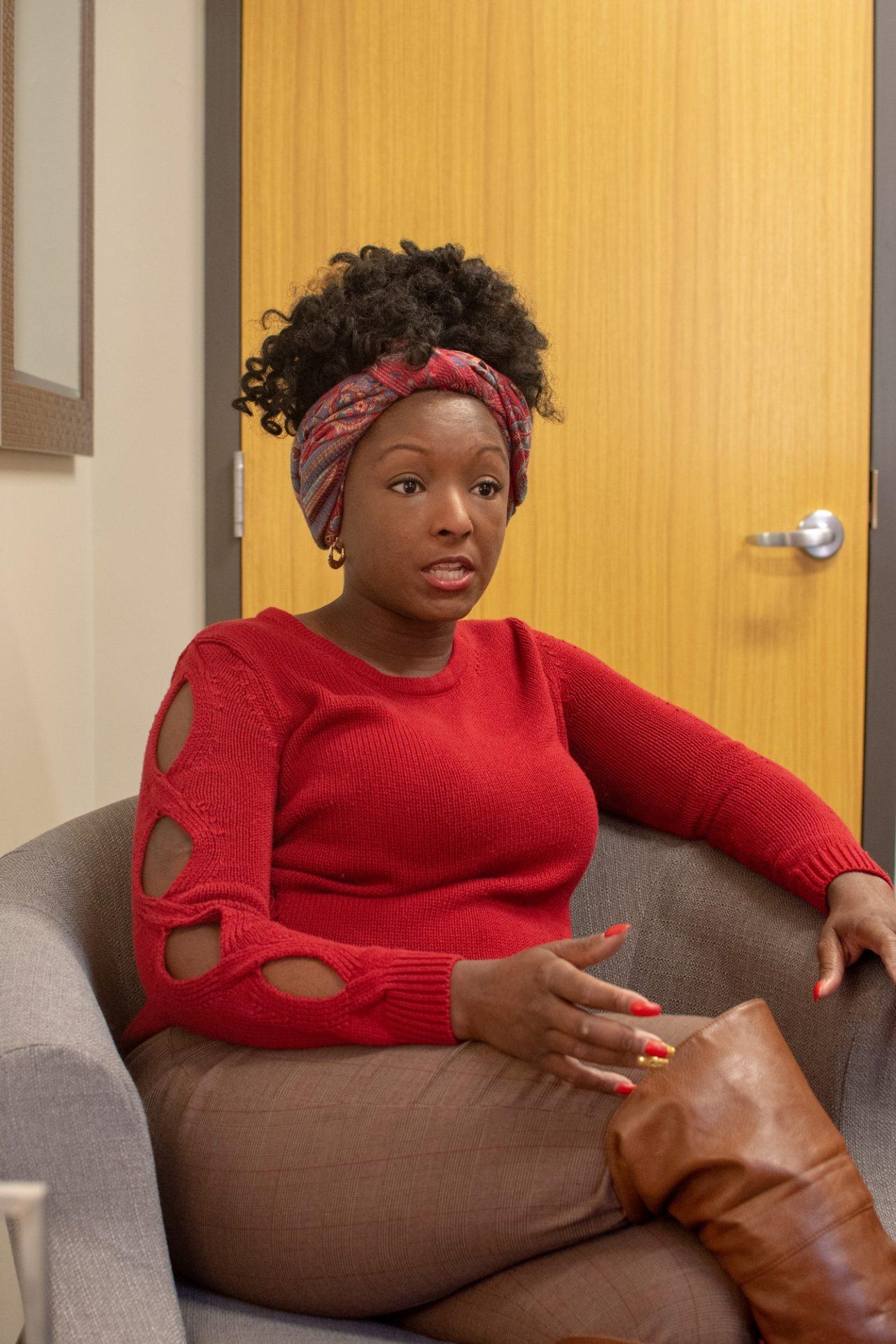Photo by Genevieve Humphreys
Over the last several years, the number of students who visit Counseling Services has steadily increased. In the fall of 2018, Counseling Services saw 293 students, which was a 5.8 percent increase from the number of students they saw in the fall of 2017. The Office of Counseling Services moved to its new location in Coates Student Center last semester, and some additional changes have been made at Counseling Services this spring.
One of the regular full-time counselors, Lori Kinkler, has been on maternity leave since February. Aisha Zarb-Cousin is filling in for Kinkler until the end of the semester. Zarb-Cousin was a practicum student in Counseling Services from the spring of 2017 to the spring of 2018. After taking last semester off from being a counselor at Trinity, Zarb-Cousin was asked to return as a part-time counselor while Kinkler is on maternity leave.
“Dr. Kinkler was expecting, and the numbers have continued to steadily increase here,” Zarb-Cousin said. “So I’m here 10 hours a week as a contracted therapist. I’m extremely grateful. I’m glad that the work I’ve done has had some type of impact that they wanted me to return. It’s very humbling. Students on Trinity’s campus are very unique in several ways. I really do appreciate working with them.”
Kinkler will return to Counseling Services in August, and Zarb-Cousin will be attending Duke University for her pre-doctoral internship in the fall. Because Zarb-Cousin is only available to students 10 hours a week, Counseling Services has had to restructure the way that they schedule appointments.
“The main thing is we’re having to stretch out sessions,” said Gary Neal, director of Counseling, Health and Wellness Services. “Our pattern in the last couple of years has been sessions every two weeks rather than weekly, and this semester we’re doing more every three weeks. It’s worrisome to us. It’s not the way we want to be working. And that’s not true for everybody, there are some students whose circumstances dictate that we need to see them more often.”
During her time as a practicum counselor, Zarb-Cousin created a support group for black students called For Us By Us that she is continuing this semester.
“At the end of fall 2017, I started having a few clients for the first time that were students of color,” Zarb-Cousin said. “They mentioned how they didn’t have a place like this for them. It was difficult for some of those students to express some of their mental health concerns with older white males, period.”
After getting a positive reaction from others in Counseling Services, Zarb-Cousin started the group in the spring of 2018.
“It went very well,” Zarb-Cousin said. “My counseling time came to an end spring of 2018, but we had made arrangements for the group to continue.”
Counseling Services has also expanded the hours that part-time psychiatrist Durga Suryadevara works.
“We got some temporary funding to expand her availability,” Neal said. “I requested a budget increase to continue that expansion next year, but I won’t know about that until May. That’s been helpful, there’s clearly a demand for psychiatric services. Wait time has been better this semester, we’ve been able to get folks into her schedule typically within a couple of weeks.”
Another change at Counseling Services this semester has been the addition of an oasis room, a small space at the front of the counseling services office which students can utilize to relax or destress. The room was opened to students earlier this semester and was designed by Kinkler and Katherine Hewitt, wellness coordinator.
“Every December, we have the stress-free zone event,” Hewitt said. “So my idea was to take that concept but how do we translate that for a day-to-day service for our students and clients? So we decided to work in a comfortable recliner, really pretty linen curtains with twinkle lights, and we have a TV in the space, and we play some nature videos and sounds, and we can also play a lot of destress activities, like muscle relaxation and breathing exercises. We have adult coloring activities, we have a little sand garden, and then we have some essential oils.”
Hewitt explained that while the oasis room has not yet been publicized to all of campus, it has been promoted to clients of Counseling and Wellness Services, as well as some student groups such as TUfit.
“We definitely have had some students use the space,” Hewitt said. “We have clients both who have seen counselors and who have not seen counselors, who have come to say, ‘Hey, can I come check out your oasis room?’ We have come up with a protocol about how the space can be used. Right now we’re trying it out with, any student can just walk in and use the space as long as no one’s in it currently and we give you about a half hour or so in the space. Just because we’re not sure how well utilized it would be, we want to make sure it’s fair and equitable and everyone gets a chance to hang out in there.”







